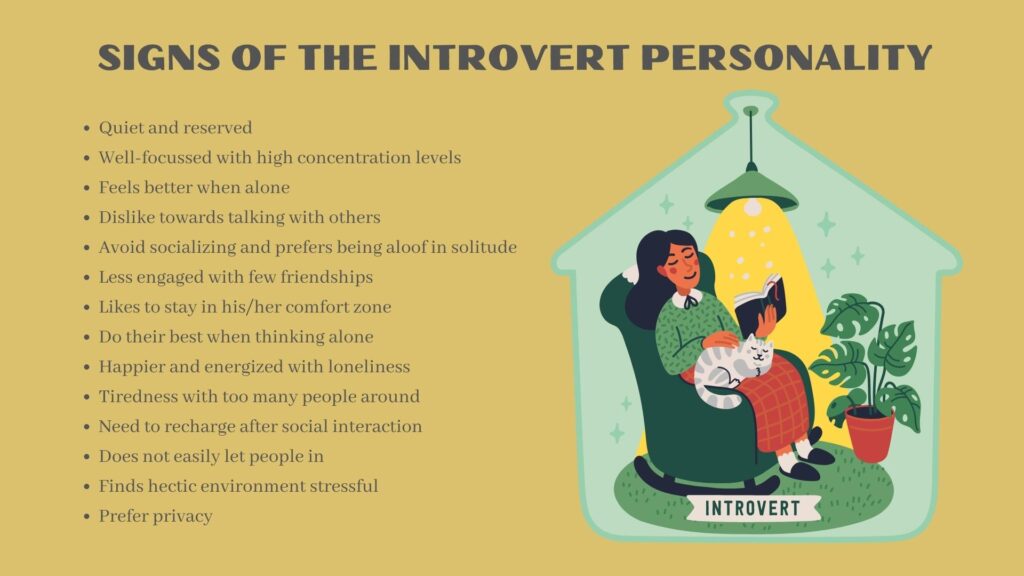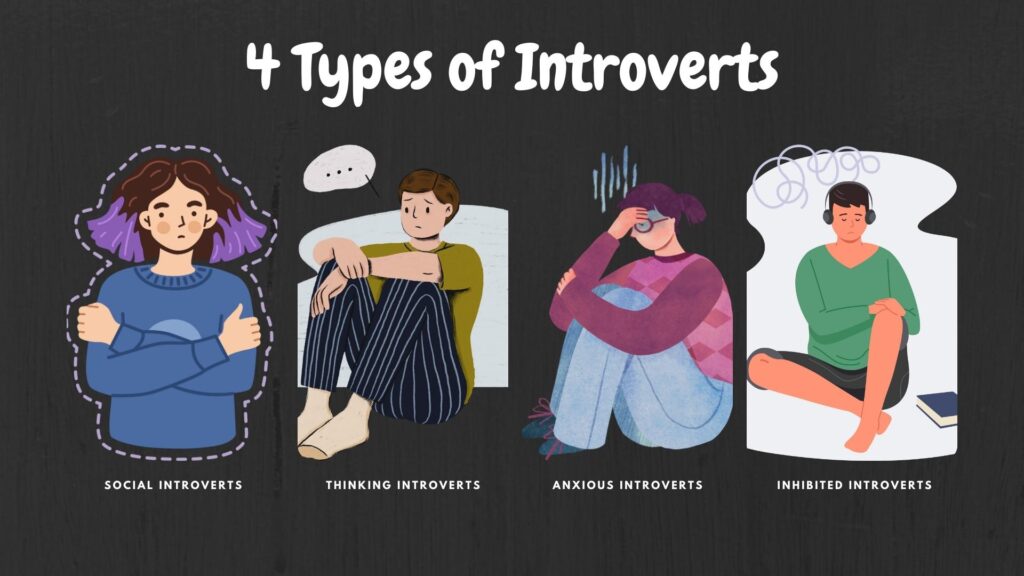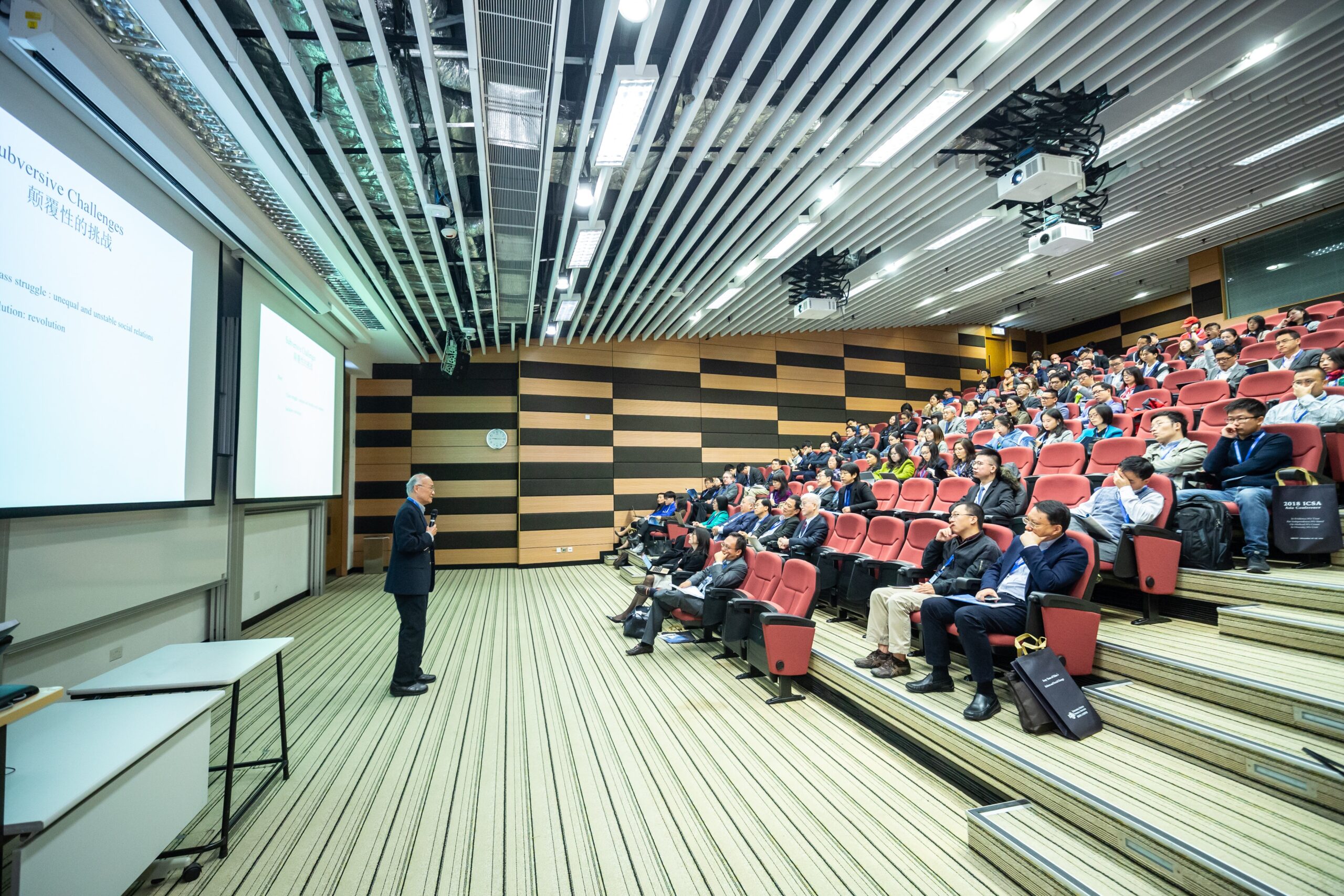Introverts are more prone to depression due to their sensitive and quiet nature. This is very true! Introverts and depression are interlinked with each other. Many introverts have struggled with depression, anxiety, or other mental health issues at some point in their lives. If you are an introvert, this is the right blog for you to learn how to stay happy in your space.
In this blog, we shall explore the reason behind introverts being more prone to depression and tips to deal with and prevent depression in introverts by overcoming it positively in life. Let’s begin!
What is an Introvert?
An introvert is a type of introversion personality in which a person is confined to themselves, focusing on inner thoughts and ideas. Introverts avoid spending time with many people and love to spend time with one person or two, or maybe just by themselves. They are considered shy, quiet, and reserved.
Incidence of Introvert Personality
It has been estimated that 25% to 40% of the global population is counted among introverted personalities. As per the data taken from 16 personalities, it has been noted that extroverted individuals account for 49.4% and introverted individuals account for 50.7%.
Research has confirmed that the intelligence quotient for introverts and extroverts is the same. However, the statistics show that 70% of introverts have a higher intelligence quotient with above-average intelligence and superior creative talent.
It is important to be aware that introverts are more prone to depression. As per a study in the Journal of Psychiatric Research, it has been confirmed that 74% of introverts are prone to depression. So, if you are concerned that being an introvert makes you more prone to depression, look at the brighter side of the picture to get involved in creativity and winning over the depressive nature.
Before we hop, skip, and jump to know why introverts are more prone to depression, let us discover more about introvert personality. Here is what you need to know.
Signs of the Introvert Personality

The signs of Introvert Personality are as follows-
- Quiet and reserved
- Well-focussed with high concentration levels
- Self-aware and self-conscious
- Reflective
- Feels better when alone
- Does not like working in a group
- Dislike towards talking with others
- Avoid socializing and prefers being aloof in solitude
- Less engaged with few friendships
- Day-dreaming and using their own imagination
- Likes to stay in his/her comfort zone
- Do their best when thinking alone
- Selective, creative, and imaginative
- Happier and energized with loneliness
- Tiredness with too many people around
- Need to recharge after social interaction
- Small talk seems a waste of time
- Does not easily let people in
- Finds hectic environment stressful
- Prefer privacy
If you are resonating with the above signs, there are higher chances of you being an introvert.
Did you know that there are various types of introverted personalities? Yes, it’s true. Let’s take a deep dive into the types of introvert personality which will give you a closer view into the mental aspect of introverts.
Types of Introverts
There are 4 types of introverts based on the behavior and uniqueness of their personality. Every person or an individual is different from another based on their traits, lifestyle, and mental aspects. The same applies to introverted personalities as well.

A STAR system model of introversion personality was developed by psychologist and researcher Jonathan Cheek, Ph.D. who was a psychology professor at Wellesley College. Based on the STAR system, there are four types of introverts which are as follows-
Social introverts
Social introverts are personalities who prefer to socialize in small groups or mainly with one or two people. They prefer a homely environment with themselves or close friends rather than indulging in a party at a club or hotel.
Thinking introverts
Thinking introverts are personalities who tend to take time in decision-making. They think twice before they speak. This makes them more introspective and creative with a higher intelligence quotient.
Anxious introverts
Anxious introverts are personalities who do not like to come out of their comfort zone. They tend to feel nervous among people thus avoiding social interaction. They tend to get anxious in crowds or social situations.
Inhibited introverts
Inhibited introverts, as the name suggests, are often reserved and like to stay by themselves. They go inward in their shell to avoid any kind of social interaction.
Why Are Introverts Prone to Depression?
There are many reasons why introverts are more prone to depression. Though being an introvert has many positive aspects, they may be prone to depressive nature. Let us find out the connection between introverted personality and depression.
Overthinking
Being an introvert is a positive personality for professional work life. But, unfortunately, introverts are often dismissed as anti-social and quite weird as they prefer solitude. An introverted personality is a healthy trait with no flaws. Thinking about how others think about you can cause a major impact on your mental health.
Many introverts tend to overthink social seclusion. This is taken as a shortcoming thinking about what others are judging you for. This can lead to low self-esteem, the feeling of guilt, worthlessness, hopelessness, and despair leading to depression.
Societal Pressure
Introverts may have constant social pressure from family, friends, and society if something is wrong with them. With continuous demands from society, you may be continuously asked to produce results with demanding expectations, be a team player, or maybe just take a stand. This can take a toll on mental health making introverts more prone to depression.
Keeping Things to Oneself and Not Sharing Feelings
Introverts are private by nature and may struggle to reach out to others especially when they are overly stressed. By not sharing thoughts and feelings with our family and friends, we may end up triggering isolation which may result in depression.
Social isolation
Social isolation is another trigger for introverts which may lead to depression. Thriving on solitude, one tends to have a fear of building closeness for personal relationships. This may lead to the suppression of feelings and intrusive thoughts causing loneliness which can lead to depression.
Introverts may tend to get uncomfortable with social situations causing overwhelmed thoughts leading to overstimulation of the mind causing mental exhaustion thus leading to depression.
Self-critical
As per studies, it has been proven that introverts are self-critical about their performance. They are easily affected by others’ criticism or talk. They are unable to accept themselves as they are. They may retain negative ideas and conflicted feelings.
How Can an Introvert Manage and Deal With Depression?
Here is expert advice on how introverts can prevent depression.
- Implement your coping mechanism
- Stay positive about your good qualities and enhance them
- Set up a self-care routine to look and feel good
- Spend some quality ME-time
- Connect with family and close friends to overcome loneliness
- Exercise and recharge yourself
- De-stress at spa or go for a vacation
- Focus on work to do better each day
- Yoga and mindfulness can work wonders
- Form meaningful connections to engage with people
Conclusion
It is important to understand introverted personalities as they are highly prone to depression and anxiety health issues. Dealing in the right way with your persona can completely bring about a positive change in your life.
Frequently Asked Questions (FAQs)
Why do introverts get easily depressed?
Introverts are sensitive to noisy environments and prefer staying alone. This makes them a reserved personality confined to themselves. Chronic loneliness may cause depression to creep in over time.
Why do introverts get easily stressed at work?
Individuals with introverted personality types are known to be perfectionists and self-critical. In the quest to stay perfect, stress may crop up at times leading to mental exhaustion or other issues.
What are the strengths and weaknesses of an introverted personality?
Introverted people are quiet, making them more focused on work with a high intelligent quotient. On the other hand, they are easily distracted when they are trying to concentrate at times due to their sensitive nature.
References
https://www.healthline.com/health/depression/introvert-depression















